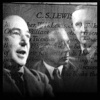
I was struck reading Marrty’s previous post (Sant’Egidio–The Weak Strength of the Gospel) by the role of friendship. Is it a principle of movement building that a “company of friends” is needed? Are the “cellular, small group structures” we’ve discussed previously powerful for change because of the quality of friendship that exists within them?
In Alan Jacobs’s The Narnian: The Life and Imagination of C.S. Lewis, Jacobs reflects on Lewis’s appreciation of the countercultural role of true friendship. Here’s an excerpt:
But the Inklings (small group of Lewis’s friends, including J.R.R. Tolkien) . . . constituted a kind of tiny counterculture, an ongoing reminder to each member that there were possibilities for the human mind, heart, and spirit beyond what one might read in the newspapers, or in intellectual journals, or in textbooks . . .
Lewis, a shrewd analyst of the countercultural possibilities of true friendship, points out in The Four Loves the habitual hostility of all “Authority” to friendship.
Every real friendship is a sort of secession, even a rebellion . . . In each knot of Friends there is a sectional ‘public opinion’ which fortifies its members against the public opinion of the community in general. Each therefore is a pocket of potential resistance.
It is not surprising, then, that so many movements of resistance and rebellion over the centuries—‘the Royal Society . . . the Romantic Movement . . . Communism, Tractarianism, Methodism, the movement against slavery, the Reformation, the Renaissance” had their origins in small groups of friends.’
As you consider the “small group structures” within your movement building efforts, could they be defined as a “small group of friends?